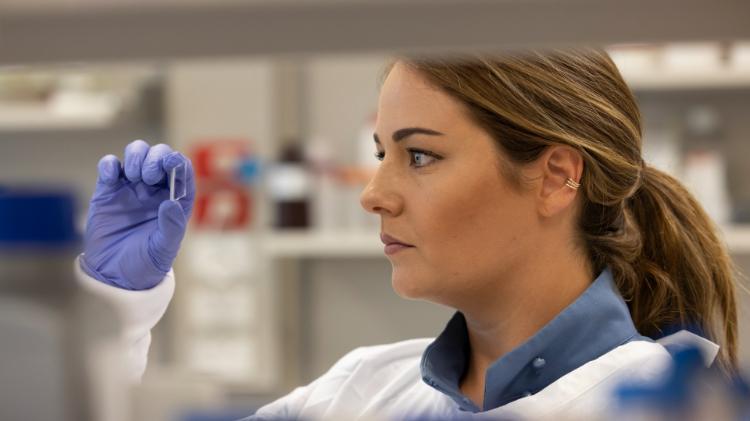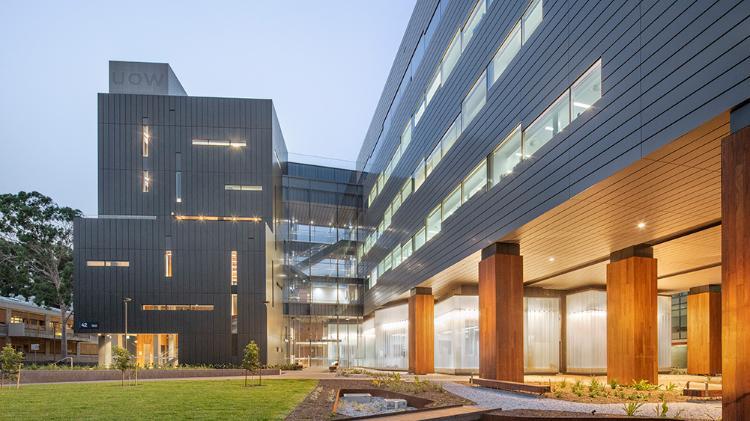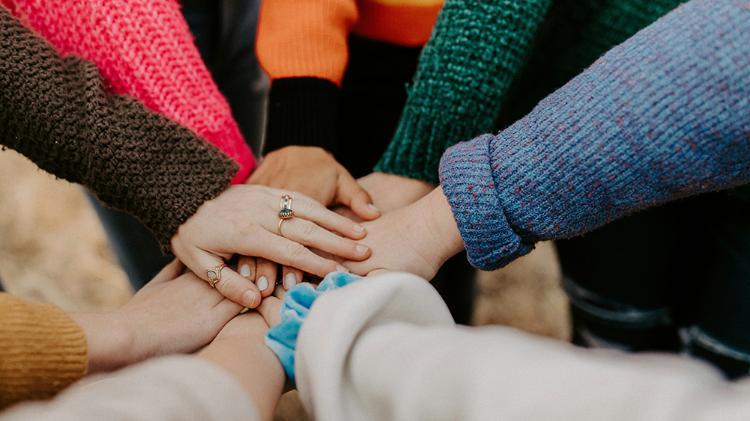Case studies
- UOW led study confirms genetic link to depression and schizophrenia
- UOW establishes Chair in Neurodegenerative Diseases
- Nanotechnology enables development of sensor to detect pain levels
- UOW, Western Sydney Local Health Service launches new Centre for Chronic and Complex Care Research
An international team of scientists, led by University of Wollongong (UOW) Honorary Senior Research Fellow, Dr Natalie Matosin, has confirmed a genetic association with severe psychiatric disorders such as depression and schizophrenia, which may change the face of therapeutic care.
The study, published in the latest edition of Acta Neuropathologica, brought together decades of evidence from around the globe suggesting that the FKBP5 gene may raise the risk of mental illness in a subset of people.
Dr Matosin highlights the FKBP5 gene is one of very few genes in psychiatry with solid evidence that it raises risk of developing a mental illness such as depression, schizophrenia, PTSD and anxiety. She says the gene is only ‘activated’ if a person has been exposed to severe stress early in life.
Dr Matosin is Head of the Mental Illness and Disorders of Stress (MINDS) Lab at UOW’s Molecular Horizons. The study, which brought together a team of researchers from around the world, looked at more than 1000 human brain specimens from people who lived with a mental illness and had donated their brains to research. It was the largest and most comprehensive study into FKBP5 in the brain to date.

- SDG 3 - Good Health and Wellbeing
- SDG 11 – Sustainable Cities and Communities
- SDG 17 Partnerships for the Goals
In recognition of two decades of extraordinary contribution to Motor Neurone Disease (MND) research by the late Professor Justin Yerbury AM, UOW established the Justin Yerbury Chair in Neurodegenerative Diseases.
Initiated by Justin and his wife Rachel, this position honours his remarkable life and legacy, continuing his vital research to understand and treat MND and other neurodegenerative diseases.
Prior to his passing in July 2023, Professor Yerbury’s lab was researching MND from the perspectives of cause and treatment. Professor Yerbury understood that without determining the causes of MND, treatment is difficult. However, he and his team had built strong foundations to test new treatments, with this testing continuing after his passing. This paradigm guided Professor Yerbury and his team and led to impactful outcomes in MND understanding.
With the generous funds received from donors, the lab was able to move forward on ideas that include the development of new ways to clear out the toxic proteins inside motor neurons, a novel idea to convert other cells into new motor neurons for regenerative medicine, and the assessment of a new drug combination that looks more effective than either drug alone at treating MND.

Professor Yerbury and the team have received more than $1 million in donations towards MND research as they continue their quest towards understanding and curing the disease.
- SDG 3 – Good Health and Wellbeing
- SDG 4 – Quality Education
Next-generation smart sensors enabled by nanotechnology are leading advancements in diverse fields, delivering previously unimaginable levels of sensitivity and portability.
According to UOW graduate and world-renowned researcher and inventor in bioanalytical chemistry, biosensors, and sustainable nanomaterials, Distinguished Professor Omowunmi Sadik, the potential to address complex challenges is enormous.
Professor Sadik, based at the New Jersey Institute of Technology, explains her research group is focused on developing innovative bioanalytical sensors for medical and environmental applications. They are currently working on a sensor to measure the level of pain an individual is experiencing.
When a physician asks a patient to rate their pain levels on a numerical scale, it can be very subjective, and in some cases – such as with children, the elderly, or those who are unconscious – it can be difficult to articulate at all. By developing sensors that accurately measure biomarkers released in the body because of pain, doctors, clinicians, and nurses can be provided with a more objective assessment of a patient’s level of pain.

SDG 3 – Good Health and Wellbeing
SDG 9 – Industry, Innovation and Infrastructure
SDG 11 - Sustainable Cities and Communities
SDG 12 – Responsible Consumption and Production
UOW and Western Sydney Local Health District (WSLHD) will work together to improve the lives of people living with chronic and complex health conditions under a new research partnership.
The partnership will collaborate on key areas of research and practice to provide insights into and identify ways to improve patient outcomes, particularly for those with chronic heart failure, atrial fibrillation, stroke, dementia and frailty.
Professor Caleb Ferguson, Associate Head of the School of Nursing at UOW and Academic Director of the Centre for Chronic and Complex Care Research, will be based at Blacktown Hospital, alongside Dr Julee McDonagh (Senior Research Fellow), Dr Sabine Allida (Research Fellow), Reejamol John (Honorary Fellow and Nurse Specialist), and Scott William (Project Officer).
 The partnership will provide an opportunity for clinicians and researchers to work together to undertake and support research that has a measurable impact on patient outcomes and models of care.
The partnership will provide an opportunity for clinicians and researchers to work together to undertake and support research that has a measurable impact on patient outcomes and models of care.
SDG 3 – Good Health and Wellbeing
SDG 11 – Sustainable Cities and Communities
SDG 17 – Partnerships for the Goals


















